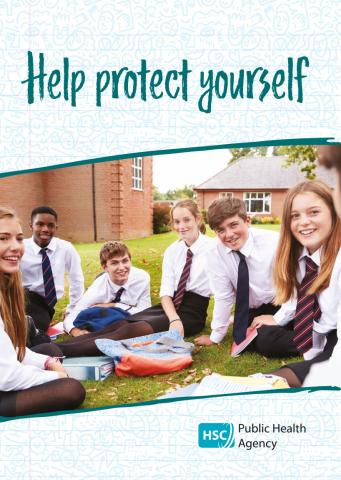Boys to join girls in HPV school vaccine programme

The Public Health Agency (PHA) is reminding parents of children who will be entering year 9 in September that they will be offered the HPV (human papilloma virus) vaccine during the first school term, with boys now eligible to receive it for the first time.
The vaccine is offered as part of the school-based vaccination programme.
The HPV vaccine was first introduced in 2008 and was offered to girls aged 12-13. In April 2019, the Department of Health announced that the vaccine will be offered to all boys in year nine also. This is because the evidence is clear that the HPV vaccine helps protect both boys and girls from HPV infection and associated cancers.
Dr Jillian Johnston, Consultant in Health Protection at the PHA, said: “The HPV vaccine will help protect your child against HPV infection and associated cancers, including over 70% of cervical cancers in women, and cancers of the mouth, throat, anus and genitals in men and women.
“It is given in the same way as other common vaccines through an injection in the upper arm. The body reacts by making antibodies that will help the immune system fight HPV infection. For the vaccine to work fully, two injections will be needed within a 12 month period. It is important that your son or daughter has both vaccinations to get maximum protection. The vaccine cannot cause HPV infection or cancer.
“HPV is very common and is easily spread through sexual activity. Although it is very unlikely that your son or daughter is at risk of HPV infection at this age, it is recommended that they have the vaccine now because studies show that protection from the vaccine is better when it is given at an earlier age.”
Parents will receive information about the vaccine over coming weeks and when the vaccination programme commences in their child’s school. If your son or daughter doesn’t get the vaccine in Year 9, he or she will be offered it again in Year 10.
“During the summer break I would urge all parents or guardians to talk to their children about the importance of getting the vaccine and ensure that those eligible return their consent forms to the school and complete the course of vaccines when offered during the forthcoming school year.
“Even though the vaccine has only been available in the UK for girls for nine years, it is very exciting that decreases in pre-cancerous lesions in the cervix and in genital warts have already been seen. It is estimated that the level of protection offered by the vaccine will last for at least 10 years so it is very important that your child receives the vaccine to help protect him or her from HPV infection and associated cancers.”
If parents have any questions about the vaccine, they can find more information on the PHA website here or they can contact their school nurse directly when school starts again.
